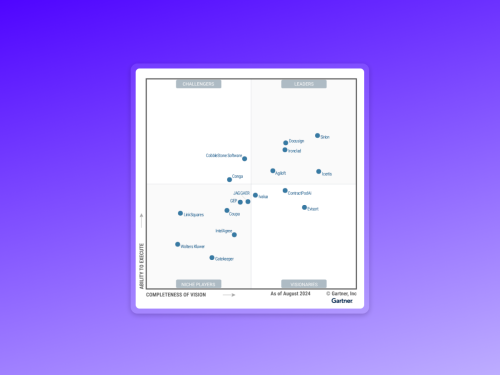
Leveraging AI To Create An Intelligent Enterprise

By Damon Dean, VP Product Management, Docusign
Over the past twelve months, you’d be hard pressed to find anything more buzzworthy than Artificial Intelligence and Machine Learning. This past year we’ve seen a near constant stream of new AI and ML startups, large funding announcements and acquisitions, as well as the continued advancements of large-scale market entrants like Google, IBM and Microsoft.
You could be forgiven for wondering what the hoopla is all about, how it applies to you and your business and you might even be wondering why now? AI and ML are in fact distinct disciplines, but in the case of the enterprise, they both work in service of trying to solve a growing big data problem. As a product guy working for a SaaS company, I see a lot of organizations, big and small, that are either in or embarking upon broad digital transformations across their business. These initiatives are usually designed to modernize an organization’s business processes, provide better customer experiences, provide competitive advantages and, of course, reduce costs. What they’re generally not designed to do, but oftentimes happens, is create a big data problem.
It’s not hard to see how it happens. Transforming businesses and business processes creates large sets of data, usually in a variety of different places across products, repositories and file stores. You transform more processes, you get more data. You get more efficient at current processes, you get more data. You expand across the enterprise and, yup, you get more data. But collecting data is only the first part of the equation. The second, as you might imagine, is making that data actionable, and that’s where it starts to get tricky.
Most digital transformations don’t involve a single product. Rather, it’s more likely a combination of multiple 3rd-party products, in-house applications and a variety of content and document management systems. It’s the number of systems, multiplied by the complexity of the data and amplified by the type of company that can create this big data explosion that so many companies are trying to apply AI and Ml technologies to help figure it all out.
Let’s take a look at a Docusign example within just a single product, Salesforce. Within our own instance of Salesforce, we aggregate several different types of data, including lead information, customer account information, contracts, customer service data, product feature and usage data to name just a few. We have multiple hundreds of thousands of paying customers, plus tens of millions of free and trial customers, all of whom are creating increasingly large data sets on a daily basis. If we wanted to build models for forecasting renewals, upgrades, or churn based on the activity going through our various systems (again, Salesforce is only one of them), it would be virtually impossible without some type of software algorithmic help.
And that’s where Google’s Cloud AI and Saleforce’s Einstein come into play. With Google’s Cloud AI, enterprises have access to series of machine learning libraries that can take structured and unstructured data from across the enterprise and learn against it, regardless of whether it’s text, images, video or even speech. With Salesforce’s Einstein, you now have powerful AI built directly into the Salesforce features you already use so that you can predict more accurately your next best sales and service opportunities.
The combination of these two AI and ML technologies can allow companies such as Docusign to harness the power of large sets of data (usage and feature data in our case) and marry it with a predictive AI in Salesforce to create advanced utilization models our outbound sales efforts, as well provide more conclusive predictive models for our web business that today are incredibly difficult for us to accomplish.
With our recent acquisition of Appuri, a machine learning and customer analytics platform, we see a tremendous opportunity for us to add to the AI and ML sales acceleration story that Google and Salesforce are telling. Lots of people think of Docusign as being able to help transform their business by bringing the agreement process online. While that’s true, we think bigger. Ultimately, we are in the business of making agreements intelligent and our acquisition of Appuri is our latest chapter in that journey. Every agreement is unique, whether it’s the customer, the terms, the payment schedule or the work to be completed. Our goal is to unlock the insights from these agreement and leverage them to accelerate the sales cycles, improve close rates and provide greater insights for your sales teams.
To that end, we are excited to be hosting a panel discussion at our Executive Briefing Center in San Francisco on January 9th to continue to discussion around AI, Machine Learning and accelerating business transformation. Moderated by Scott Olrich, Docusign’s Chief Strategy and Marketing Officer, the panel includes Apoorv Saxena from Google’s Cloud AI Product team, Jim Sinai, Saleforce’s VP Product Marketing, Einstein and Kirsten Wolberg, Docusign’s Chief Technology and Operations Officer. Click here to learn more about the event and to sign up to attend.
Related posts
Discover what's new with Docusign IAM or start with eSignature for free


